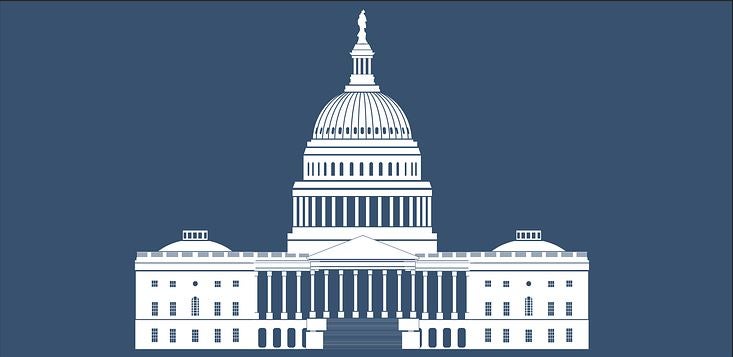WASHINGTON, D.C. – The Fertilizer Institute (TFI), along with the International Fertilizer Development Center (IFDC), The Nature Conservancy, and the National Corn Growers Association (NCGA), announced the organizations and products selected for Phase two trials in the Next Gen Fertilizer Challenges. Collectively, the challenges aim to accelerate the development of innovative fertilizer product technologies and to increase the use of existing enhanced efficiency fertilizers (EEFS) that maintain or increase crop yields and reduce environmental impacts to air, land, and water. The organizations partnered with the Environmental Protection Agency (EPA) and the U.S. Department of Agriculture (USDA) on the challenges.
“For generations, we’ve seen how innovation has shaped modern U.S. agriculture into the most successful and efficient production system in the world,” said Corey Rosenbusch, TFI president and CEO. “This public-private partnership represents the next generation of fertilizer technologies that will produce results for farmers and the land. I am proud to see several TFI members selected here as industry leaders in adopting and promoting these new technologies.”
“Corn farmers have a vested interest in using new technology that improves their operations and minimizes their environmental impact,” said NCGA President John Linder. “We are pleased to be a part of these Challenges and to work with these partners to promote sustainable farming practices that build up soil health, allowing farmers to improve productivity and profitability while also preserving natural resources for future generations.”
The first of two Next Gen Fertilizer Challenges, EEFs: Agronomic and Environmental Challenge, aims to identify existing EEFs currently on or near-market that meet or exceed certain environmental and agro-economic criteria. Phase one included review and selection of product nominations by an expert judging panel. Phase two, to be initiated this spring, will include greenhouse trial evaluations of the winning products by researchers at IFDC. The products will be evaluated based on environmental, agronomic, and economic performance factors.
“I am pleased to see the Next Gen Fertilizer Challenge bridging the gap between good ideas and their implementation,” said Albin Hubscher, IFDC president and CEO. “Strategic partnerships such as this will continue to catalyze innovation in improving global soil health and closing the yield gap. IFDC anticipates exciting results from our evaluations of these products.”
Fertilizers facilitate the growth of crops at yields that provide sustained global food production. However, nitrogen and phosphorus fertilizers applied without consideration of the principles of 4R Nutrient Stewardship (source, rate, time, and place) can have harmful economic, environmental, and social effects. EEFs and other new product technologies and formulations control fertilizer release or alter reactions to increase nutrient uptake by the plant and reduce nutrient losses to the environment. These technologies can be an important addition to a conservation practice system that helps reduce row crop agriculture impacts on the environment, while maintaining or increasing agricultural productivity and profitability.
“The Nature Conservancy is excited to be part of the Next Gen Fertilizer Challenges as a way to drive new innovations that will help farmers better understand which enhanced efficiency fertilizers may work best on their farm,” said Carrie Vollmer-Sanders, director of strategic engagement for agriculture, The Nature Conservancy in North America. “We are strong advocates of the 4R approach to nutrient management and believe that the EPA and USDA’s science-based approach to the challenge will help farmers implement the 4Rs on their cropland.”
The winners include (listed by company and product name):
- AgroLiquid: Pro-Germinator
- CHS Agronomy: Trivar
- Corteva Agriscience: Optinyte
- EuroChem Agro: ENTEC
- Harrell’s: POLYON
- Koch Agronomic Services: CENTURO
- Koch Agronomic Services: SUPERU
- MicroSource: Hi-Test
- Nutrien: ESN
- Pursell Agri-Tech: PurYield
- Renuvix: Renuvix CRFs
- SABIC: BCRU
- The Andersons: Struvite DG
- Timac Agro USA: Duo Maxx
- Timac Agro USA: Top-Phos
- Verdesian Life Sciences: AVAIL
The second component of the Next Gen Fertilizer Innovation Challenge will identify novel pre-market technologies for fertilizers that can reduce the environmental effects from modern agriculture while maintaining or increasing crop yields. Winners are expected to be announced in spring 2021.
The Fertilizer Institute (TFI) is the leading voice of the nation’s fertilizer industry. Tracing its roots back to 1883, TFI’s membership includes fertilizer producers, wholesalers, retailers and trading firms. TFI’s full-time staff, based in Washington, D.C., serves its members through legislative, educational, technical, economic information and public communication programs. Find more information about TFI online at TFI.org. Learn more about TFI’s nutrient stewardship initiatives at nutrientstewardship.org.
Founded in 1957, the National Corn Growers Association represents nearly 40,000 dues-paying corn farmers nationwide and the interests of more than 300,000 growers who contribute through corn checkoff programs in their states. NCGA and its 50 affiliated state organizations work together to create and increase opportunities for corn growers.
An independent non-profit organization, IFDC is active in 20 countries in Africa, Asia, and America. Combining science-backed innovations, an enabling policy environment, holistic market systems development, and strategic partnerships, the organization bridges the gap between identifying and scaling sustainable soil solutions, resulting in improved household food security and enriched family livelihoods around the world. Using an inclusive approach, IFDC employs locally driven, environmentally sound, and impact-oriented solutions that bring change at local, regional, and national levels.
###









